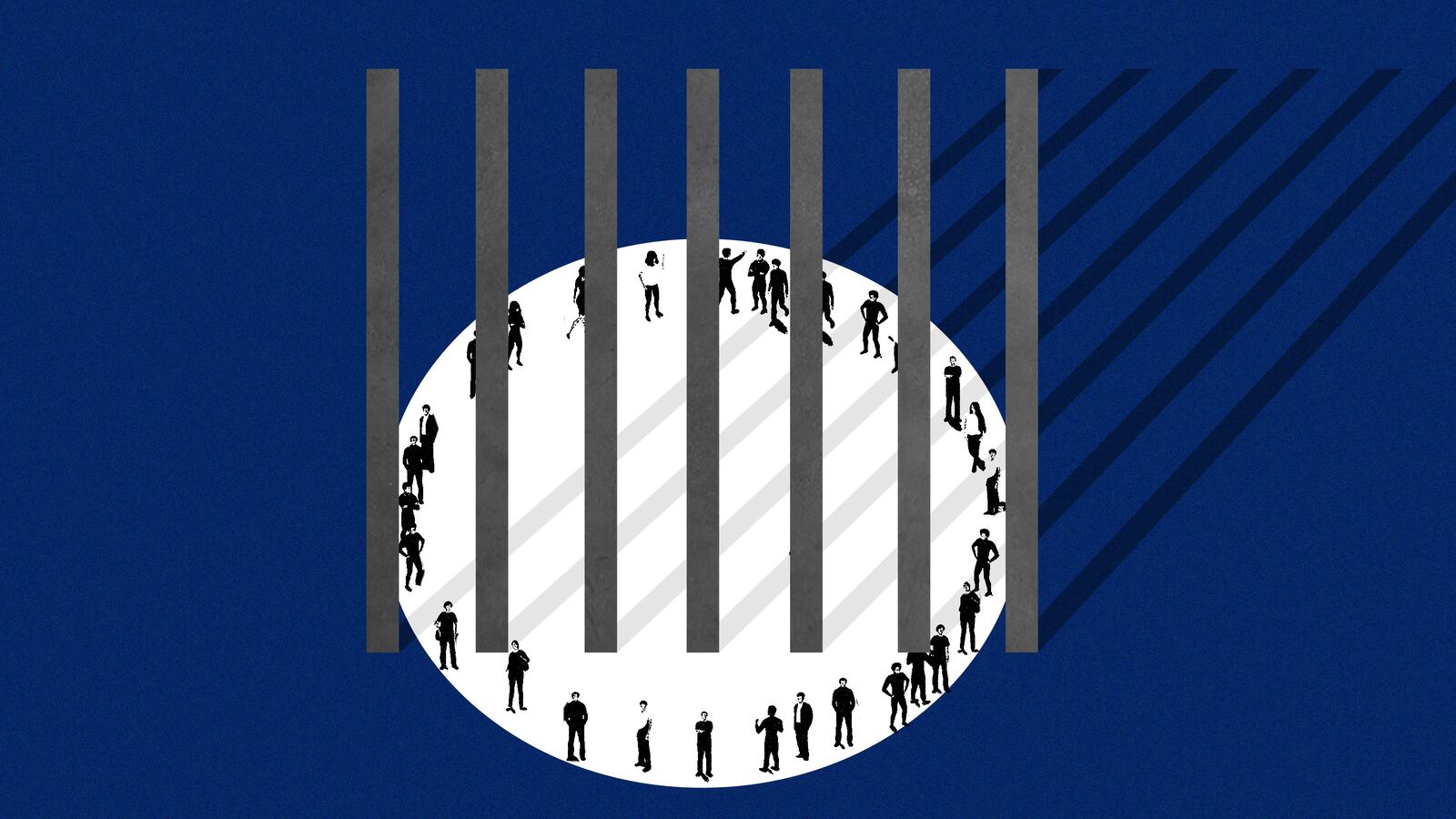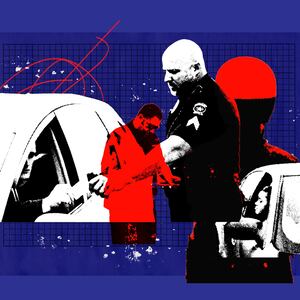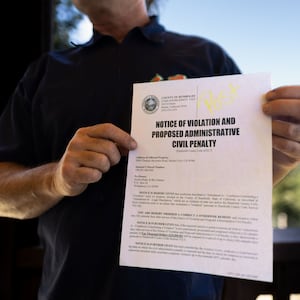Returning to society after spending time incarcerated is difficult. For many people, like Altimont Mark Wilks, the government makes it even harder by creating new ways to punish them in perpetuity, even after they complete their sentence.
Altimont owns Carmen’s Corner Store in Hagerstown, Maryland, a community where around 20 percent)" href="https://urldefense.com/v3/__https:/zwly9k6z.r.us-east-1.awstrack.me/L0/https:*2F*2Fdata.census.gov*2Fmap*3Fq=snap*26g=040XX00US24*25248600000*26cid=S2201_C04_001E*26vintage=2020*26layer=VT_2020_860_00_PY_D1*26mode=thematic*26loc=39.6581,-78.1550,z8.5972/1/01000189b6ac137e-572c228e-cb7b-4b36-bfaa-5bcc65fb247e-000000/r8qXhhPccIfHBVOVHbbYPZQcgME=333__;JSUlJSUlJSUlJSU!!LsXw!RgB3DCkeOXxhln3zIgvo0UaAYB4X0CMtzuQph0AwZ_gHqwNSstFZc1o05ZQJ4ixKGp6gJjDReFiPpNPojyuN$">20 percent of people rely on the Supplemental Nutrition Assistance Program (SNAP) to buy their groceries. But a federal agency decided that Altimont can never accept SNAP as a form of payment at Carmen’s.
That decision isn’t because Altimont has done anything wrong as a business owner, but rather because of unrelated crimes from 2004, for which he’s already served his time.
The United States Department of Agriculture (USDA) permanently bans anyone with drug, alcohol, tobacco, or firearms convictions from participating in the SNAP program—a harsher punishment than the agency dishes out to those who have actually defrauded the program. That’s not just irrational, it’s also unconstitutional, which is why Altimont teamed up with our organization, the Institute for Justice (IJ), to file a federal lawsuit against the agency on Tuesday.
Since his release from prison in 2018, Altimont has been a model citizen. He began working as a delivery driver for FedEx to save money. Then, with help from his mother, he was able to open Carmen’s, which he named after her. He also joined the same local Rotary Club that counts the judge who sentenced him as a member, partnered)" href="https://urldefense.com/v3/__https:/zwly9k6z.r.us-east-1.awstrack.me/L0/https:*2F*2Fwww.heraldmailmedia.com*2Fstory*2Fnews*2F2019*2F07*2F16*2Few-corner-store-in-hagerstown-offers-a-second-chance*2F44374057*2F/1/01000189b6ac137e-572c228e-cb7b-4b36-bfaa-5bcc65fb247e-000000/872PTZZ26wk38G3d0XErmOskohY=333__;JSUlJSUlJSUlJQ!!LsXw!RgB3DCkeOXxhln3zIgvo0UaAYB4X0CMtzuQph0AwZ_gHqwNSstFZc1o05ZQJ4ixKGp6gJjDReFiPpAr77KJS$">partnered with the Maryland Comptroller's Office to help other returning citizens find work, and helped)" href="https://urldefense.com/v3/__https:/zwly9k6z.r.us-east-1.awstrack.me/L0/https:*2F*2Fwww.heraldmailmedia.com*2Fstory*2Fnews*2F2019*2F12*2F25*2Fhagerstowns-needy-line-up-for-free-christmas-dinner-and-treats*2F44360121*2F/1/01000189b6ac137e-572c228e-cb7b-4b36-bfaa-5bcc65fb247e-000000/zGXIxP453dOUV9hOh6Sgost5dN4=333__;JSUlJSUlJSUlJQ!!LsXw!RgB3DCkeOXxhln3zIgvo0UaAYB4X0CMtzuQph0AwZ_gHqwNSstFZc1o05ZQJ4ixKGp6gJjDReFiPpBftzcj2$">helped feed people in need during the holidays.
Despite all that, the USDA claims that Altimont doesn’t have sufficient moral integrity to participate in the SNAP program.
“Carmen’s isn’t just a corner store; it’s a cornerstone in the community,” said Altimont, who opened his business specifically in a low-income neighborhood so he could help provide for his neighbors.
Unfortunately, the USDA’s permanent punishment scheme isn’t unique. People like Altimont throughout the country face arbitrary hurdles to employment that various government agencies create for people returning from incarceration.
One state away from Altimont, Virginia)" href="https://urldefense.com/v3/__https:/zwly9k6z.r.us-east-1.awstrack.me/L0/https:*2F*2Fij.org*2Fcase*2Fvirginia-fresh-start/1/01000189b6ac137e-572c228e-cb7b-4b36-bfaa-5bcc65fb247e-000000/_KaVTsPRy6o-VjjIP9n9upjxJIg=333__;JSUlJQ!!LsXw!RgB3DCkeOXxhln3zIgvo0UaAYB4X0CMtzuQph0AwZ_gHqwNSstFZc1o05ZQJ4ixKGp6gJjDReFiPpDz-9drf$">Virginia bars anyone convicted of any of 176 “barrier” crimes from ever working in “direct care” jobs, such as substance-abuse counseling.
This policy often prevents people with first-hand experience battling drug addiction from helping others in similar positions. People like Rudy Carey who, after years of drug and alcohol addiction, completed rehab and got clean in 2007. He then got married, finished hundreds of hours of coursework and training in counseling, and began working as a counselor in Fredericksburg, Virginia. After five years helping people battle addiction, Rudy was informed that his work was illegal because of a single assault conviction from 2004.
These policies don’t apply just to people who spend time in prison. In Knoxville, Tennessee, Joe Armstrong)" href="https://urldefense.com/v3/__https:/zwly9k6z.r.us-east-1.awstrack.me/L0/https:*2F*2Fij.org*2Fcase*2Fknoxville-radio/1/01000189b6ac137e-572c228e-cb7b-4b36-bfaa-5bcc65fb247e-000000/1BBtsJ_iq3MpTgFIZcOy3R-wamI=333__;JSUlJQ!!LsXw!RgB3DCkeOXxhln3zIgvo0UaAYB4X0CMtzuQph0AwZ_gHqwNSstFZc1o05ZQJ4ixKGp6gJjDReFiPpCzom6Z3$">Joe Armstrong faces a similar battle with the Federal Communications Commission (FCC).
Joe is the owner of the city’s only Black-owned radio station, WJBE, which was previously owned by music legend James Brown. But the FCC is threatening to strip the station of its license because of Joe’s personal tax crime from 2009, before he was even involved with the station. But Joe already served probation for this offense, and also paid his back taxes and additional fines. Even the judge in Joe’s case said he had led an “exemplary life,” other than his tax conviction.
That doesn’t matter to the FCC.
Not only do these barrier laws hurt people by threatening their livelihood, they also hurt the communities in which these individuals live.
Blocking Altimont from accepting SNAP makes it harder for low-income people in Hagerstown to buy groceries; preventing Rudy from providing counseling makes it harder for people struggling with addiction in Fredericksburg to find the help they need; and stripping WJBE’s license would take away a cultural icon in Knoxville.
Further, studies)" href="https://urldefense.com/v3/__https:/zwly9k6z.r.us-east-1.awstrack.me/L0/https:*2F*2Fwww.brookings.edu*2Farticles*2Fa-better-path-forward-for-criminal-justice-training-and-employment-for-correctional-populations*2F*23:*:text=Access*2520to*2520legal*2520employment*2520is,an*2520individual's*2520propensity*2520to*2520recidivate./1/01000189b6ac137e-572c228e-cb7b-4b36-bfaa-5bcc65fb247e-000000/6HXv4-28UDggo3d2iHr1N7RfLVs=333__;JSUlJSUlfiUlJSUlJSUl!!LsXw!RgB3DCkeOXxhln3zIgvo0UaAYB4X0CMtzuQph0AwZ_gHqwNSstFZc1o05ZQJ4ixKGp6gJjDReFiPpBdXk_px$">studies have shown that gainful employment is one of the most important factors in ensuring returning citizens don’t reoffend.
Altimont, Rudy, Joe, and countless others throughout the country have paid their debts to society and turned their lives around. The government shouldn’t turn their previous mistakes into permanent black clouds.
Jared McClain and Andrew Ward are attorneys at the Institute for Justice who represent Altimont Mark Wilks in his lawsuit against the United States Department of Agriculture (USDA).










